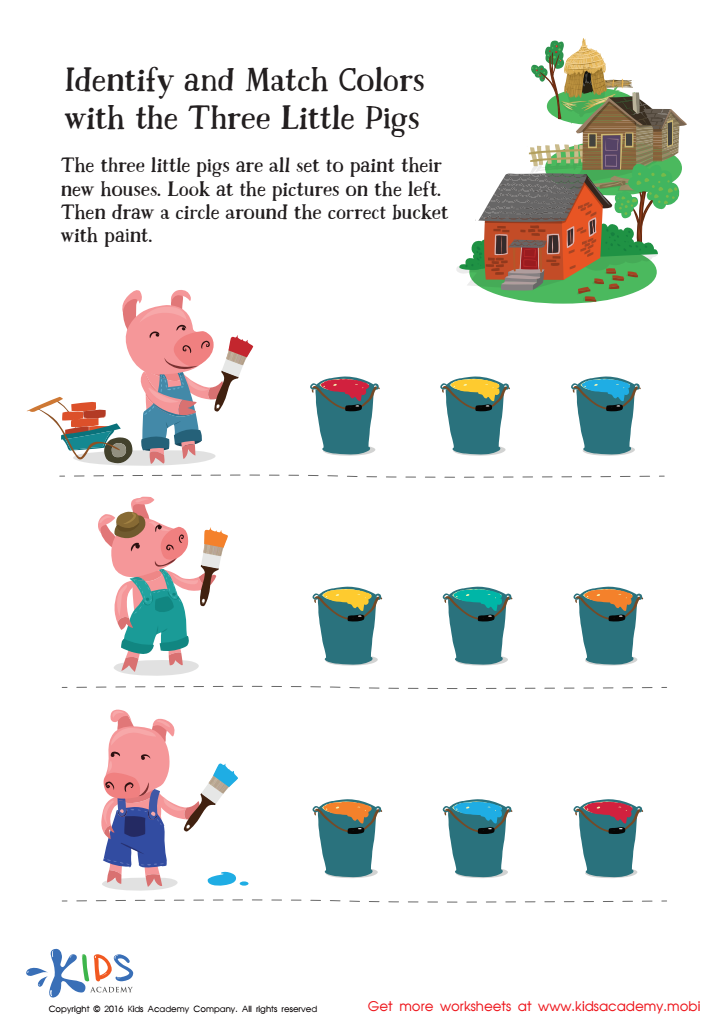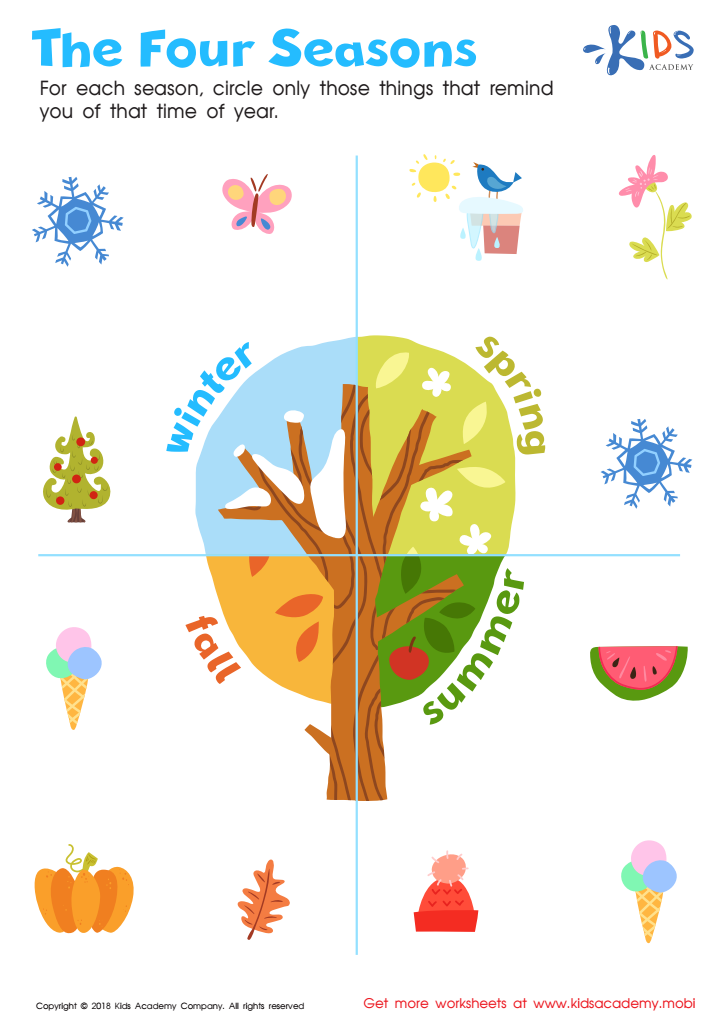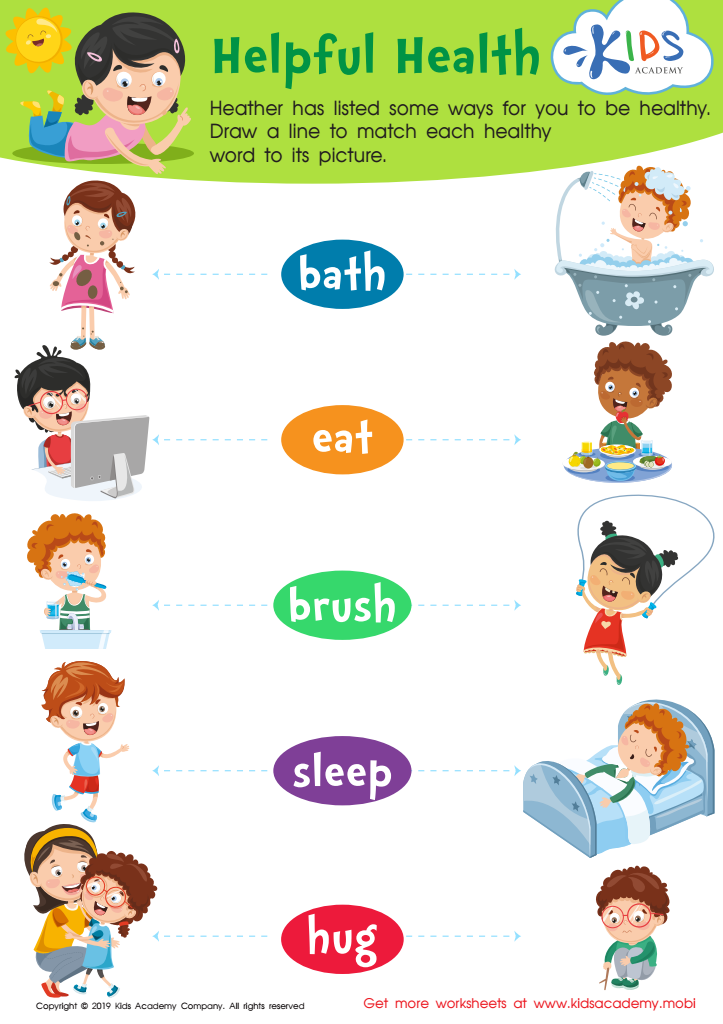Vocabulary enhancement Normal Matching Worksheets for Ages 3-4
4 filtered results
-
From - To
Enhance your child's vocabulary with our engaging and effective Normal Matching Worksheets designed for ages 3-4. These educational worksheets are carefully crafted to boost young learners’ language skills while making learning fun and interactive. Each sheet features colorful illustrations and simple matching activities that help children associate words with pictures, reinforcing their understanding of new words. Perfect for both classroom and home use, these printable worksheets encourage early literacy while promoting critical thinking and cognitive development. Set the foundation for your child’s communication skills with our expertly designed vocabulary enhancement worksheets. Download and start learning today!


Fairy Tale Worksheet: Identify and Match Colors with Three Little Pigs


The 5 Sense Scientist Worksheet


The Four Seasons Worksheet


Helpful Health Worksheet
Vocabulary enhancement through normal matching activities for children aged 3-4 is paramount for several compelling reasons. Firstly, early language development is foundational for future academic success. During these formative years, children's brains are remarkably receptive to learning new words, laying the groundwork for literacy, reading comprehension, and effective communication skills. By engaging in vocabulary-building activities, like matching words with objects or pictures, young children make vital connections between words and their meanings in a fun and interactive manner.
Secondly, a rich vocabulary enables children to express themselves more clearly and accurately, reducing frustration and fostering better social interactions and emotional regulation. As children's expressive language develops, they are better able to articulate their needs, thoughts, and feelings, fostering more meaningful relationships with adults and peers.
Finally, early exposure to a diverse vocabulary expands a child's cognitive abilities, enhancing their critical thinking and problem-solving skills. The process of matching words encourages active engagement and promotes an understanding of categorization, similarities, and differences, key concepts in early learning.
Therefore, parents and teachers should invest time in vocabulary enhancement activities to build a solid linguistic foundation, promote cognitive and emotional development, and prepare children for future learning experiences. This foundational skill directly contributes to a child's overall success and well-being.
 Assign to My Students
Assign to My Students
















